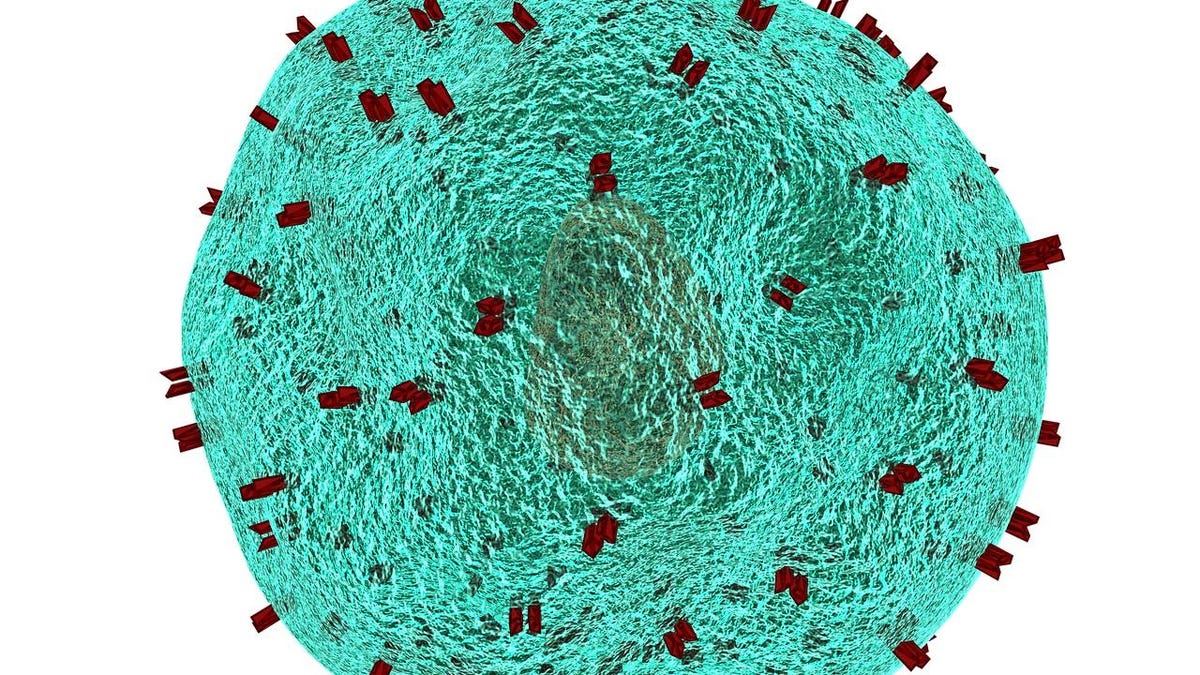Gene treatment to kill cancer moves a step closer to market
An advisory panel says it's time patients had access to gene-altering treatments. If approved, the first to make it to market would take on a stubborn form of leukemia.

A rendering of a T-cell that can be reprogrammed to attack cancer cells.
A new era of treating disease has moved a step closer to reality in the United States.
A Food and Drug Administration panel gave a thumbs-up Wednesday to a gene therapy that involves genetically engineering a patient's T-cells to fight a particular type of leukemia, The New York Times reports.
If the FDA agrees with the panel's recommendation and moves to approve the treatment for commercial use, it would be the first such gene-altering treatment to make it to market.
In recent years, new techniques to "edit" genes, such as CRISPR-Cas9, have gotten lots of attention, but medical researchers and pharmaceutical companies have been racing for decades to bring a gene therapy with a targeted medical purpose to this point.
This particular treatment was first developed at the University of Pennsylvania and has been licensed by Novartis, which is seeking to make the milestone treatment known as CTL019 available on a limited basis at just few dozen medical centers nationwide.
Only a few thousand people are affected by the B-cell acute lymphoblastic leukemia that proves stubborn in the face of conventional treatments for about 15 percent of cases, most of them in children and young adults. Novartis is also working on other similar treatments for additional types of cancer and an aggressive brain tumor.
The treatment is complex and must be personalized for each patient. Essentially, millions of T-cells must be extracted, frozen and sent off to Novartis, where they are thawed, engineered using a disabled form of the HIV virus that reprograms them to kill cancer, then frozen again and sent back to be administered to the patient.
It's a little bit like sending your white blood cells off to be transformed into "Terminator" cells.
Some have predicted the treatment could cost as much as $300,000 (about £232,700, AU$390,690), the Times reports, but no official pricing estimates have been announced.
Once the stuff of science fiction, altering human genes has been creeping into reality of late. Also on Wednesday, researchers at Harvard announced they'd managed to encode video files into the genetic material of living cells, demonstrating the viability of a "molecular recorder" that could lead to more disease treatments in the future.
Technically Literate: Original works of short fiction with unique perspectives on tech, exclusively on CNET.
Crowd Control: A crowdsourced science fiction novel written by CNET readers.

